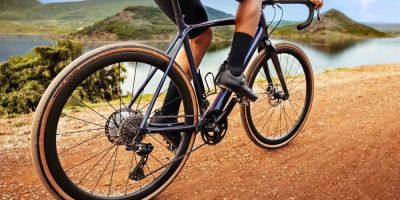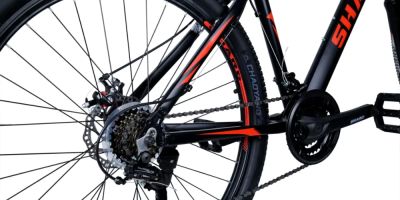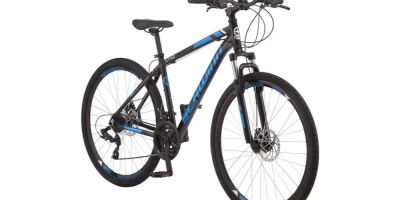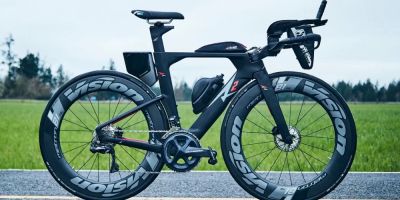Choosing the Right Cycling Helmet: A Complete Guide for Riders
As a passionate cyclist, I know how important it is to stay safe while enjoying a ride, whether it’s a quick trip around the city or a long adventure through scenic routes. One of the most essential pieces of gear every cyclist should invest in is a good helmet. But with so many options available on the market, how do you choose the best cycling helmet? I’ve been through the process myself, and after years of cycling, I’ve learned a few key factors that can make a big difference in comfort, safety, and overall performance. In this article, I’ll guide you through the essential features to consider when picking the right helmet, share my personal experiences, and explain what to look for in terms of fit, materials, safety standards, and style.
1. The Importance of a Cycling Helmet
Before diving into the specifics of picking a helmet, it’s essential to understand why wearing one is so crucial. Cycling helmets are designed to protect your head in case of an accident. They can significantly reduce the risk of head injuries and concussions, which is why they are required by law in many places. But even if it’s not legally mandated, wearing a helmet is always a good idea to stay safe on the road.
I’ve personally experienced the importance of a helmet during an unfortunate fall on a mountain trail. My helmet protected me from a serious injury, and I often think about how much worse it could have been without it. This personal experience reinforced the idea that choosing the right helmet is not just a matter of convenience but also a matter of safety.
2. Key Factors to Consider When Picking a Cycling Helmet
When I first started cycling, I didn’t know much about helmets, and I ended up picking the first one I saw. Over time, I realized there’s much more to a good cycling helmet than just the look or price. Here are the most important factors to consider when picking the best cycling helmet for your needs:
2.1. Fit and Size
Fit is the number one factor when choosing a helmet. A helmet that doesn’t fit properly won’t provide the protection you need in case of a fall, and it can be uncomfortable to wear on long rides. I’ve learned through trial and error that trying on a helmet and adjusting it is essential before making a purchase. The helmet should fit snugly on your head, with no gaps between the helmet and your scalp. It should sit level on your head and not tilt back or forward. You should also be able to adjust the straps to ensure a snug fit under your chin.
When I tried on helmets for the first time, I made sure to test them by moving my head side to side and up and down to see how securely they stayed in place. If a helmet shifts or feels loose, it might not offer adequate protection, especially in the event of a crash.
2.2. Safety Standards and Certification
Safety is, of course, the primary reason to wear a helmet, and every cycling helmet must meet specific safety standards. In the U.S., helmets must be certified by the Consumer Product Safety Commission (CPSC), which ensures that the helmet provides adequate protection during impacts. Many high-quality helmets also meet additional international standards, such as the European standard (CE) or the Australian standard (AS).
When I first started cycling seriously, I was surprised by how many helmet brands offer additional safety certifications. I always check for these certifications before buying a helmet, as it gives me peace of mind knowing that the helmet has been rigorously tested for impact resistance and other safety features.
2.3. Ventilation and Comfort
One thing I’ve learned after hours of cycling in hot weather is that ventilation is crucial. A well-ventilated helmet helps to regulate temperature, wick away sweat, and keep you cool during long rides. Most modern helmets come with multiple ventilation holes, but the design of these vents can make a big difference in how breathable the helmet feels.
During my rides, I’ve used several helmets with varying levels of ventilation. Some helmets felt suffocating during hot days, while others were designed with larger, more effective air vents that kept me cool. It’s important to find a helmet with ventilation that suits your local climate. If you live in a warmer region, look for a helmet with more ventilation, and if you’re riding in colder conditions, choose one that offers better insulation.
2.4. Weight and Aerodynamics
Weight is another factor to consider when choosing a cycling helmet, especially for those who spend long hours in the saddle. A lighter helmet can help reduce fatigue and improve comfort, but it’s essential not to sacrifice safety for weight. While a super-lightweight helmet might sound appealing, ensure that it still meets the necessary safety standards.
As a competitive cyclist, I once upgraded to a lightweight, aerodynamic helmet to improve my performance during races. The aerodynamic design helped me cut through the air more efficiently, and the reduced weight made long rides more comfortable. However, not all cyclists need an ultra-light helmet, so think about your needs and how often you’ll be using the helmet before making a decision.
2.5. Helmet Materials and Durability
When picking a cycling helmet, the materials used in its construction can affect both safety and durability. Most helmets are made from a combination of expanded polystyrene foam (EPS) and a hard outer shell. EPS is designed to absorb impact energy, while the outer shell protects against sharp objects and abrasions.
I’ve had helmets that I’ve used for years and others that I had to replace quickly. The difference in longevity often came down to the quality of materials. Helmets with high-quality foam and a durable outer shell tend to last longer and provide better protection over time. It’s a good idea to check the build quality of the helmet and ensure that it feels solid but not too heavy.
2.6. Style and Features
While safety and comfort are top priorities, style and additional features also play a role in choosing the best helmet for you. Helmets come in various styles, from road cycling helmets with a sleek design to mountain biking helmets with a more rugged look. Additionally, some helmets come with built-in visors, adjustable fit systems, and even integrated lights for added visibility during night rides.
I personally love helmets with integrated features like a visor for sun protection or reflective details for safety during early morning or evening rides. These added features can enhance your riding experience and add to your overall comfort and safety.
3. How to Test the Helmet Before Buying
Once you’ve narrowed down your options, it’s crucial to test the helmet before purchasing. Try it on in the store or order from a reputable online retailer with a return policy that allows you to test it out. Wear the helmet for several minutes and check for comfort, fit, and stability. You should also make sure that the helmet doesn’t obstruct your field of vision or cause discomfort around your ears or neck.
I always make sure to adjust the straps and test the fit on a long ride or at least a short bike ride around the block to ensure it stays in place and doesn’t cause irritation. If you’re not comfortable during the test ride, you’ll likely experience discomfort during your regular rides as well.
4. Conclusion: Choosing the Best Cycling Helmet for Your Needs
Choosing the right cycling helmet is essential for ensuring your safety and comfort while riding. After considering factors like fit, safety standards, ventilation, weight, and style, you’ll be well on your way to finding a helmet that suits your needs. Don’t rush the decision—take the time to try on several helmets and test them out before making a purchase. Your helmet will be your most important piece of gear, so investing in the right one is worth the effort.
If you’re looking for expert recommendations on cycling helmets or other biking gear, I highly recommend checking out 【Healthy Cycling】 for the best products, reviews, and advice to help you make an informed choice. Happy cycling!










